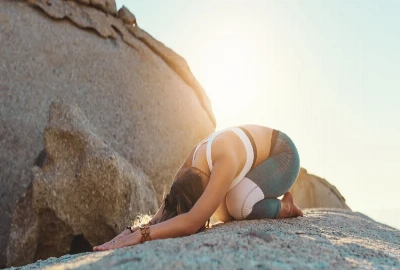You Don’t Need a Hobby, You Need a Brand

In a world where everyone is busy showcasing their skills, side hustles, and niche passions, the traditional idea of having a hobby feels almost outdated. Once, it was enough to say you liked painting, running, or photography. Now, those same interests are less about self-enjoyment and more about curation, storytelling, and strategy. In short, you don’t need a hobby, you need a brand.
Your brand isn’t just a logo, color palette, or carefully curated Instagram feed. It’s the narrative that ties together who you are, what you care about, and how others perceive you. Unlike a hobby, which lives in the private space of personal fulfillment, a brand functions in the public domain. It tells people why they should care about you in a crowded, noisy digital landscape.
So, what does it mean to transform hobbies into a personal brand—and why does this shift matter more than ever in 2025? Let’s break it down.
The Evolution from Hobby to Brand
Not long ago, hobbies were seen as healthy distractions from the daily grind. You learned guitar for fun, baked bread for comfort, or took up cycling to stay fit. No pressure. No metrics.
But in today’s attention economy, hobbies are rarely just private pursuits. The moment you share your painting on Instagram, post your running stats on Strava, or upload a bread-making tutorial on TikTok, you’re stepping into the realm of branding. What was once play becomes performance.
This shift isn’t necessarily negative—it reflects how people use hobbies as storytelling tools. Your “brand” grows from consistently sharing who you are and what you do, whether that’s urban gardening, digital illustration, or marathon training. The difference is that now, these activities position you in a narrative others can follow, engage with, and even invest in.

Why Branding Matters More Than Hobbies
If hobbies are about fulfillment, branding is about visibility and identity. And in 2025, visibility translates into opportunity. Here’s why:
Careers Reward Personality, Not Just Skills
Employers and collaborators don’t just look at résumés anymore—they look at your online presence. A well-developed brand signals creativity, consistency, and authority, even if it all started as a hobby.
Monetization Opportunities
Hobbies might cost you money, but a personal brand can make you money. Influencers, thought leaders, and creators all started with something they loved, but what separated them from hobbyists was turning that love into a brand others could recognize and support.
Standing Out in the Attention Economy
With algorithms curating every feed, blending in means being invisible. Branding ensures you control your story instead of letting platforms or randomness define it.
In other words: a hobby fulfills you, but a brand amplifies you.

Turning Hobbies into a Personal Brand
So how do you move from “I enjoy this thing” to “I’m building a brand around this thing”? It doesn’t mean monetizing every interest, nor does it mean creating an artificial identity. It’s about intention, consistency, and communication.
Define Your Narrative
Ask yourself: Why do I do this? What story am I telling? For example, baking sourdough could be just about bread—or it could become a brand around slow living, sustainable food, or cultural storytelling through recipes.
Choose Your Mediums Wisely
You don’t need to be everywhere. Pick platforms that fit your brand story. Writers thrive on Substack, visual artists on Instagram or Behance, and conversationalists on TikTok or YouTube.
Establish Consistency
Consistency is branding’s secret weapon. Posting once in a blue moon won’t establish identity; showing up regularly with content that aligns with your message will.
Share Value, Not Just Updates
Your brand grows when your audience gets something out of it—knowledge, inspiration, entertainment. Don’t just post what you did; frame it in a way that makes it useful to others.
Embrace Evolution
The best personal brands aren’t static. They grow as you grow. That means you don’t have to lock yourself into one identity forever—you can let your brand adapt as your interests and skills shift.

Common Mistakes to Avoid
While building a brand from a hobby can be exciting, many people fall into avoidable traps. Here’s what not to do:
Forcing a Brand Too Early: Not every hobby needs to become content immediately. Build passion before performance.
Copying Instead of Creating: Mimicking someone else’s style dilutes your voice. A brand works best when it’s authentically yours.
Chasing Virality Over Authenticity: Going viral may bring short-term attention, but authenticity sustains a long-term brand.
Burnout from Over-curation: Turning every interest into content can strip the joy from hobbies. Remember balance.
The Mental Shift: From Hobbyist to Brand Builder
At its core, the statement “You don’t need a hobby, you need a brand” is about mindset. Instead of thinking of your interests as isolated activities, think of them as threads weaving into a bigger story of who you are.
This doesn’t mean monetizing every second of your life or performing authenticity for strangers online. It means recognizing that in today’s culture, visibility is as much a currency as talent. Whether you’re an entrepreneur, a freelancer, or someone navigating career transitions, branding gives your identity structure and makes your passions legible to the outside world.

Actionable Steps to Start Building Your Brand
Audit Your Interests: List your hobbies and identify which ones align with your future goals or the story you want to tell.
Craft a Mission Statement: Write one to two sentences about what your brand stands for. Example: “I document my marathon journey to inspire everyday people to embrace fitness and discipline.”
Pick Your Platforms: Focus on two or three platforms where your content will shine.
Create a Content Plan: Decide what to share weekly or monthly—tutorials, behind-the-scenes, progress updates, or thought pieces.
Engage with Community: Reply to comments, join discussions, and collaborate with others in your niche. Branding is as much about relationships as it is about content.

The Future of Personal Branding
In 2025 and beyond, the line between hobbyist and brand-builder will continue to blur. Platforms reward those who create stories, not just content. Employers reward those who are visible, not just skilled. Communities grow around identities, not just activities.
That’s why the future belongs to those who recognize that their brand is their most valuable asset. A hobby might give you joy, but a brand gives you recognition, resilience, and reach.





